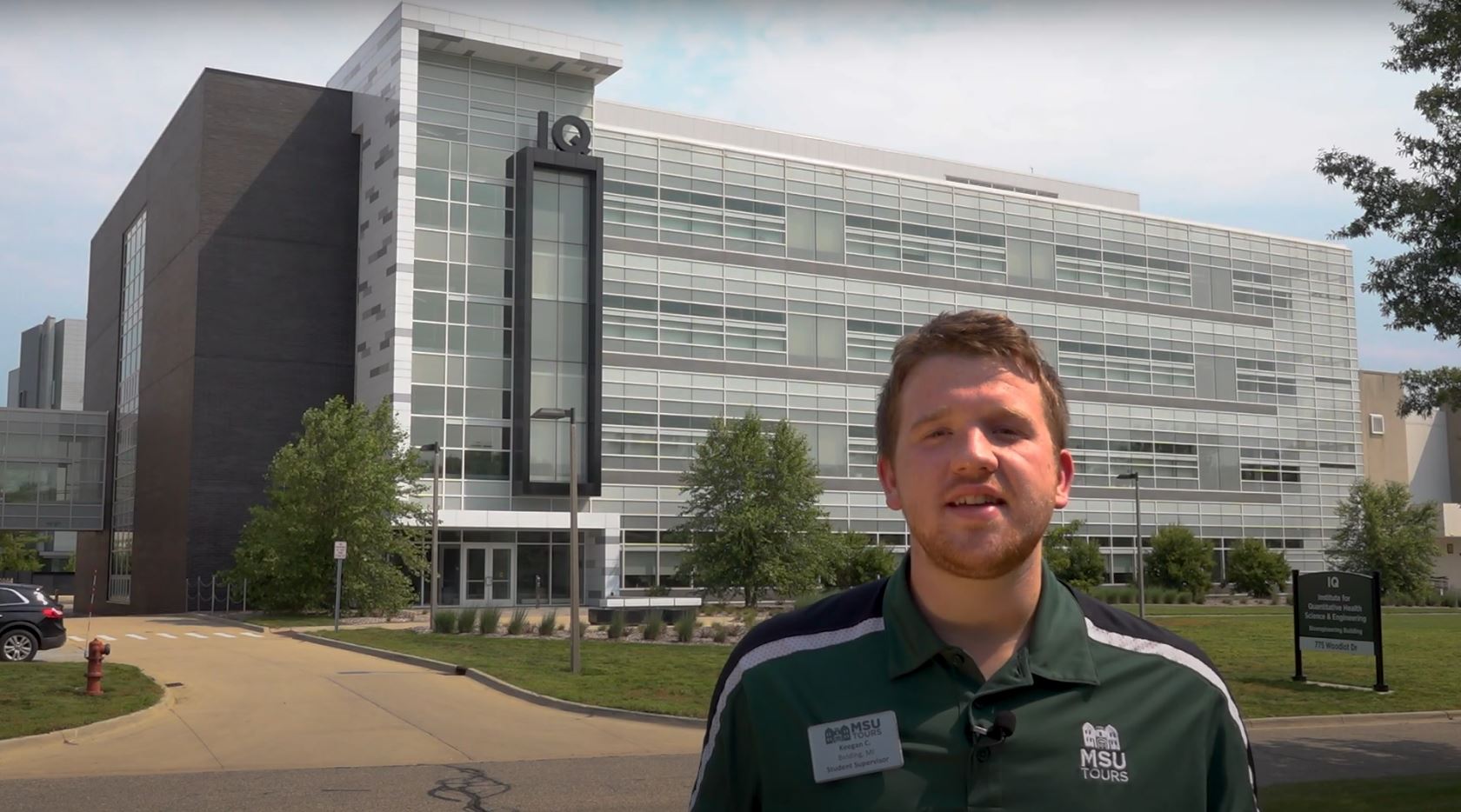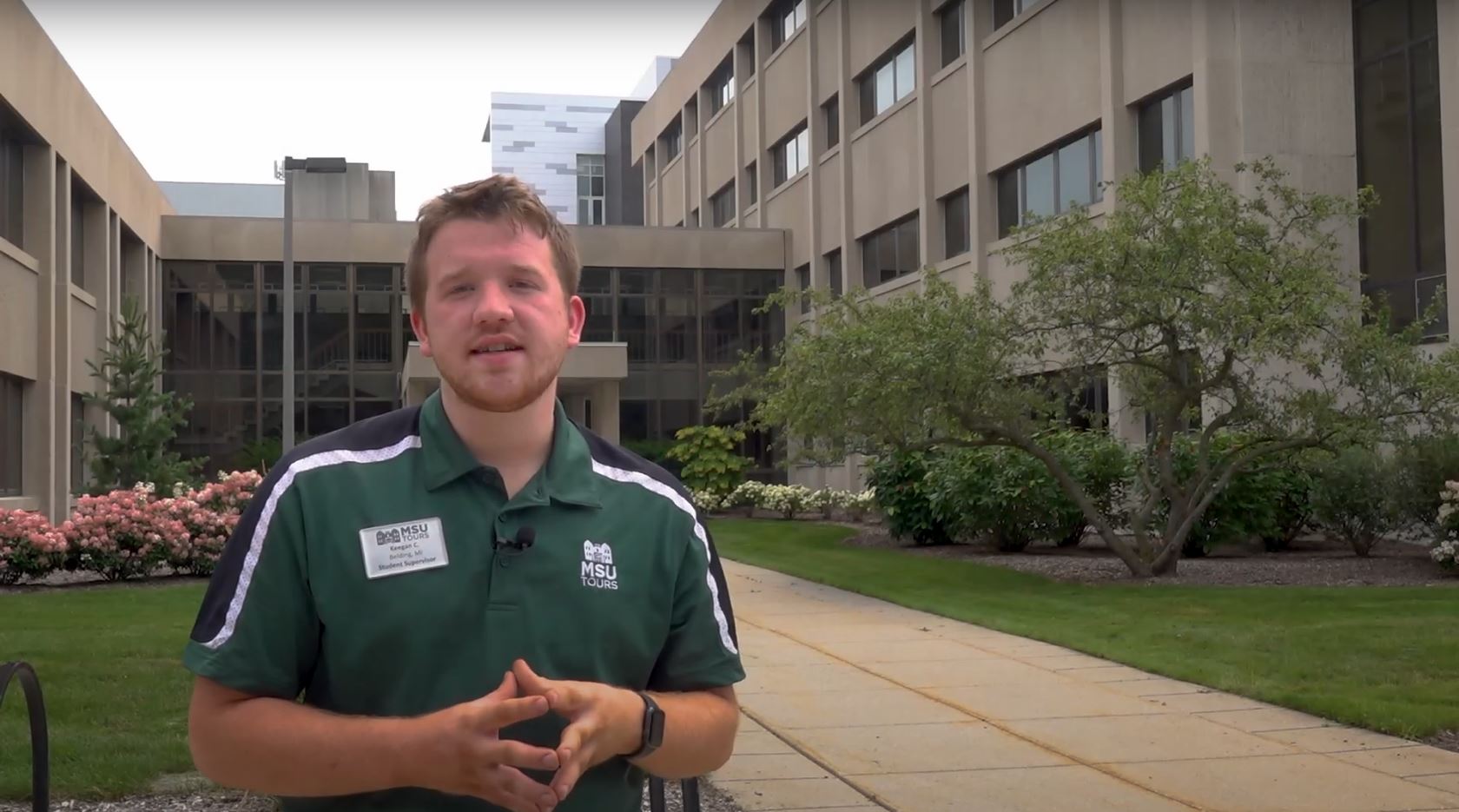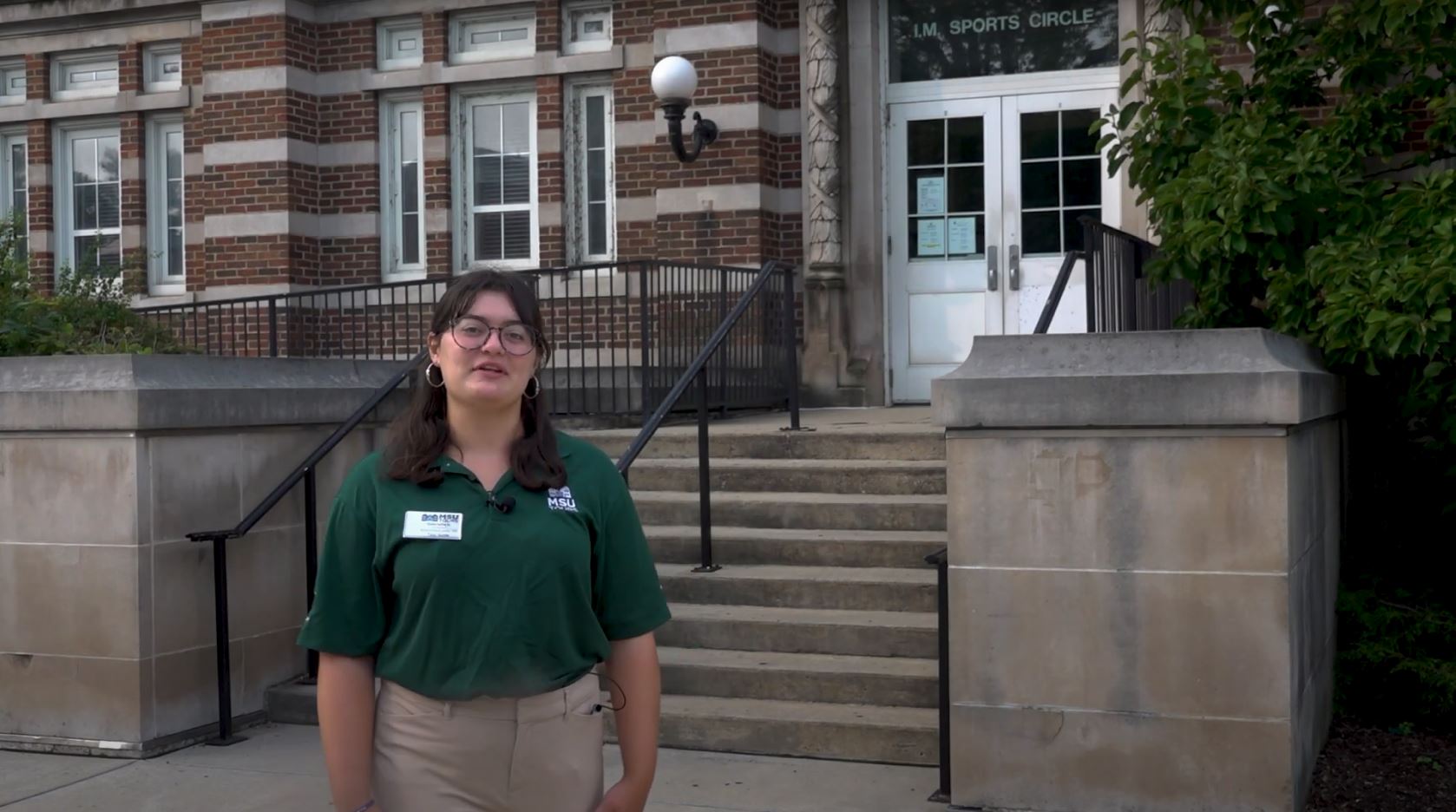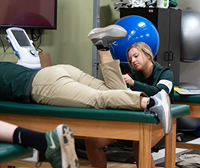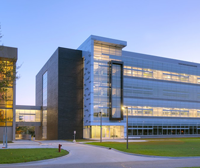
Institute for Quantitative Health Sciences and Engineering (IQ)
Home of groundbreaking research in engineering, human medicine and natural science
MSU IQ is focused on training the next generation of scientists to do more than just traditional research. Researchers and students from the College of Engineering, College of Human Medicine and the College of Natural Science are led by faculty from top academic centers around the world as they work. The space is dedicated to collaborative, interdisciplinary research in these three areas to help solve world problems through teamwork across different areas of study. Core facilities include the advanced molecular imaging facility, MSU flow cytometry core facility, and the transgenic and genome editing facility. Available equipment includes medical imaging equipment and flow cytometers to aid in new drug discovery.
Undergraduate students can begin conducting research during their first year on campus, and students from other colleges are able to collaborate with the teams at IQ, too. Divisions of research include biomedical devices, biomedical imaging, chemical biology, developmental and stem cell biology, neuroengineering, synthetic biology, systems biology and more.
Spartan researchers have a history of creating a healthy world for others. Examples of this are the discovery of Cisplatin’s use as an anti-cancer drug, improving food safety for immunocompromised patients, fighting tuberculosis and Alzheimer’s, connecting diet and chronic diseases, helping prevent outbreaks of waterborne diseases and addressing health inequities in underserved populations.
Making discoveries at MSU
Undergraduate students can begin conducting research at MSU IQ during their first year on campus.
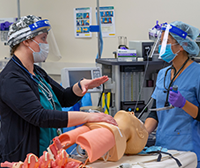
Life Science Building
Campus home to programs for the College of Nursing and more
Located in the southeast corner of campus off of Service Road, the Life Science Building is home to the College of Nursing and next door to a larger complex consisting of the Bott Nursing Building and Clinical Center. Most human medicine and nursing students will spend time here and at the Secchia Center in Grand Rapids during their coursework. First- and second-year students are connected through state-of-the-art technology, including lectures held in auditoriums that allow students and faculty at both locations to see, learn and interact with each other.
MSU is a research institution and one of the three universities that make up Michigan’s University Research Corridor. Students also have a strong track record of entry into medical and other health professional schools upon graduating with their bachelor’s degree from MSU. Graduate students who choose to continue their education at MSU gain competitive advantages through MSU’s Research Technology Support Facility, which is made up of five analytical facilities and specially-trained staff that help provide researchers with sophisticated analyses and fundamental tools for modern science research.
Newly built and renovated home of Spartan Nursing
The Life Science Building and Bott Nursing Building are part of the health sciences educational complex on Service Road.
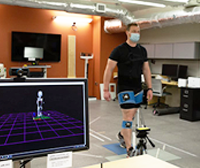
Intramural (IM) Sports Circle Building
Home to MSU’s Department of Kinesiology
Found on West Circle Drive next to the Beal Botanical Garden, the IM Sports Circle Building is both a fitness center and the location for most kinesiology classes. At IM Circle, students will find an indoor pool, two gyms, two dance studios and badminton courts.
Students in the Department of Kinesiology take classes covering a variety of topics including motor control and development, sports business management, athletic training and sports medicine, psychology and sociology of physical activity, and sport and exercise physiology. Students also study fitness leadership and learn the best ways to promote health and wellness in communities, at home and abroad. Graduates from the Department of Kinesiology are prepared for career opportunities in fields like occupational therapy, personal training, public health consulting and much more.
MSU’s past on display
You can still find the logo for Michigan Agricultural College (M.A.C.), MSU’s name from 1909-1925, on the northern entrance of IM Sports Circle.

Veterinary Medical Center
MSU is home to the only College of Veterinary Medicine in the State of Michigan.
The Michigan State University College of Veterinary Medicine was established in 1910 as a four-year degree-granting program. From the very beginning, MSU has been a leader in veterinary science, and this continues today through world-class facilities and prominent research. The college now includes four biomedical science departments — Large Animal Clinical Sciences, Small Animal Clinical Sciences, The Veterinary Medical Center, and the Diagnostic Center for Population and Animal Health — and several research centers.
The College of Veterinary Medicine offers certificate and bachelor’s degree programs in veterinary nursing and other advanced degrees for undergraduate students. The college offers a Doctor of Veterinary Medicine program as well. In the college, students get hands-on experience working in veterinary diagnostics and laboratories at the small and large animal clinics on campus. Students also work with board-certified, fully licensed veterinarians and faculty to handle more than 1.2 million diagnostic labs per year.
One and only
The College of Veterinary Medicine is the only college of its kind in the State of Michigan.
Health Sciences
There are many ways that you can customize your study of health sciences at MSU, and no student journey looks the same. Whether your interests lie in physical or mental health, human or animal health, there is guaranteed to be a great option for you.
Tour Stops
Click a map icon or choose from the list below


